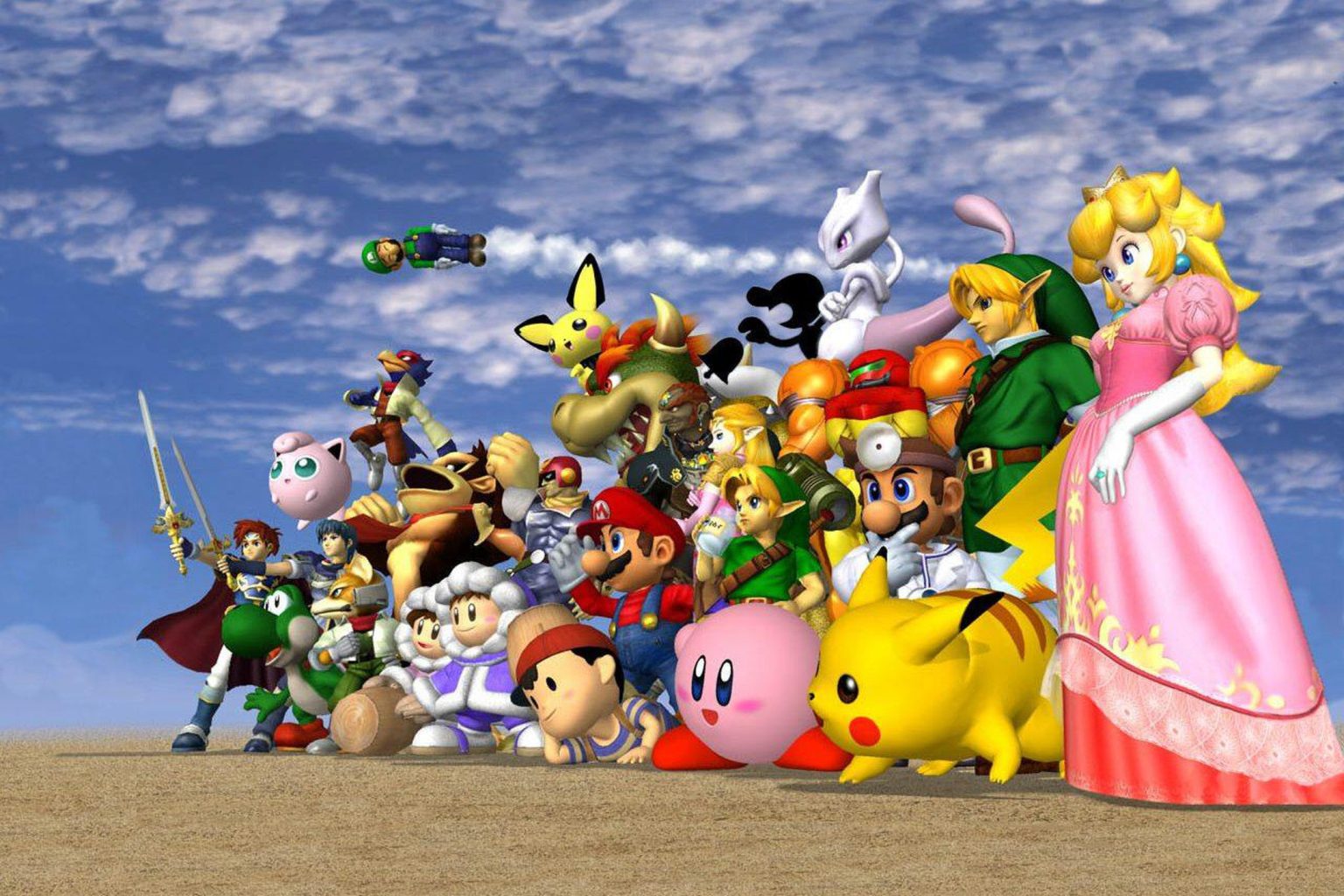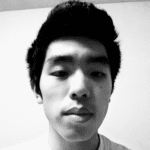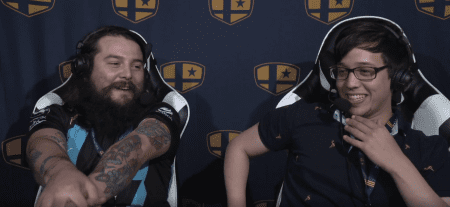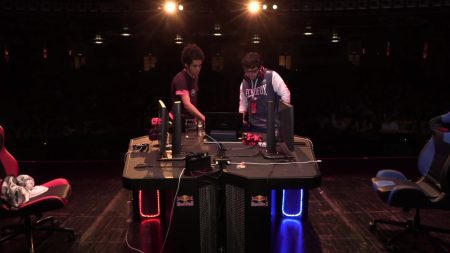Meet the Newest Generation of Platform Fighters
The “platform fighter” genre has existed for decades, even if the specific phrase to describe them didn’t reach mass relevance until years later. For the longest time, it was a moniker applied solely to Super Smash Bros., and even then often only to differentiate the series from “traditional” fighting games—part of a long-running, probably fruitless discussion to determine whether or not Smash is a “true” fighting game. For years, Smash was the only platform fighter of note amid a sea of licensed shovelware, fanworks, memes, and games that were simply lacking polish.
However, recent years have brought forth a new wave of platform fighters. Brawlhalla, Brawlout, Rivals of Aether, Icons: Combat Arena, Slap City, and more have all released or gone into early access within the last couple of years. Many have a strong competitive bent to them as well, trying to build and cultivate their own hardcore communities. But the shadow of Smash, and Melee in particular, looms tall over them all. As the game that birthed, then carried, the competitive Smash scene to prominence, it should come as no surprise that Melee in particular serves as a strong inspiration for some of these games. But Melee is a game that attracts unabashed love as well as occasional controversy, a game whose beautiful idiosyncrasies are split between intentional and accidental constructions, a game disavowed by its creator, a game buoyed by a fervently passionate but sometimes insular hardcore community. Is following in the footsteps of Melee really a good idea?
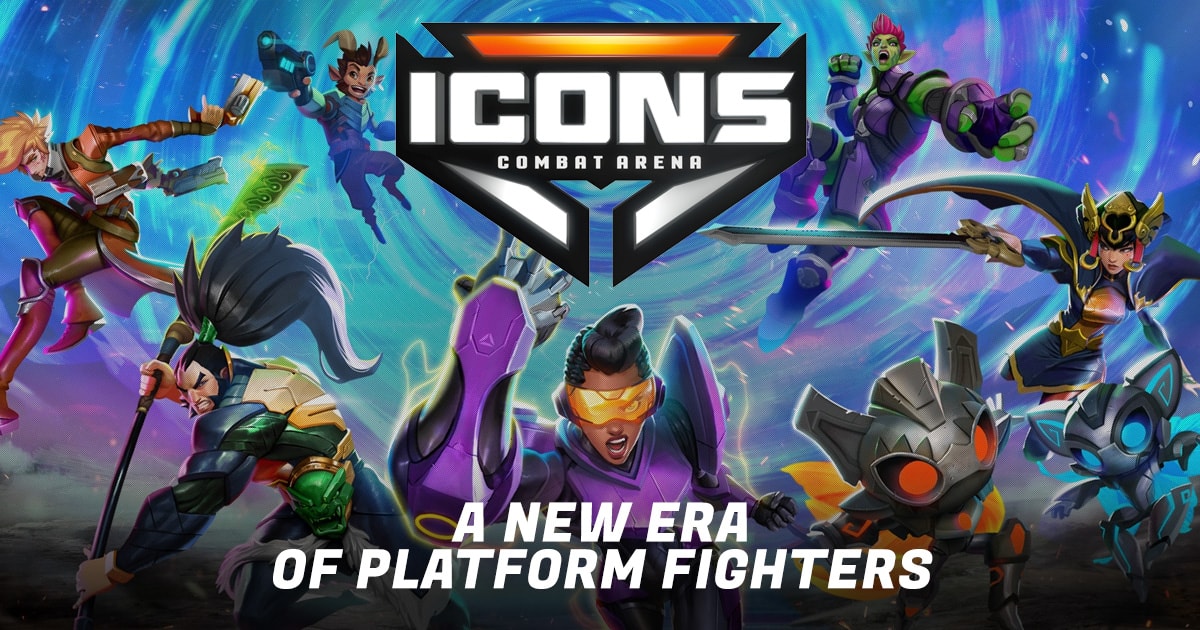
What is Icons: Combat Arena?
Melee’s fingerprints are all over Icons. They are inextricable, one game so clearly inspired by the other. The studio behind the game is called Wavedash Games, after one of the advanced movement techniques only possible in Melee (and technically originally from Tekken, though I would say that at this point the term wavedash is probably more strongly associated with Smash). The creative director of Icons, Jason Rice, might be more recognizable to old-school Smashers as M3D, a former competitor turned tournament organizer who ran Melee events as part of MLG’s professional circuit in the mid-2000s. Icon’s development team also notably has a handful of former PMDT members—developers of the Project M mod, which aimed to make Super Smash Bros. Brawl play more like Melee before it evolved into its own entity. (Though it should be noted that it truly is just a handful—Icons is often paired with the phrase “developed by the former PMDT,” but it’s not that many people, though Strong Bad, one of the primary PMDT developers, is the lead game designer.)
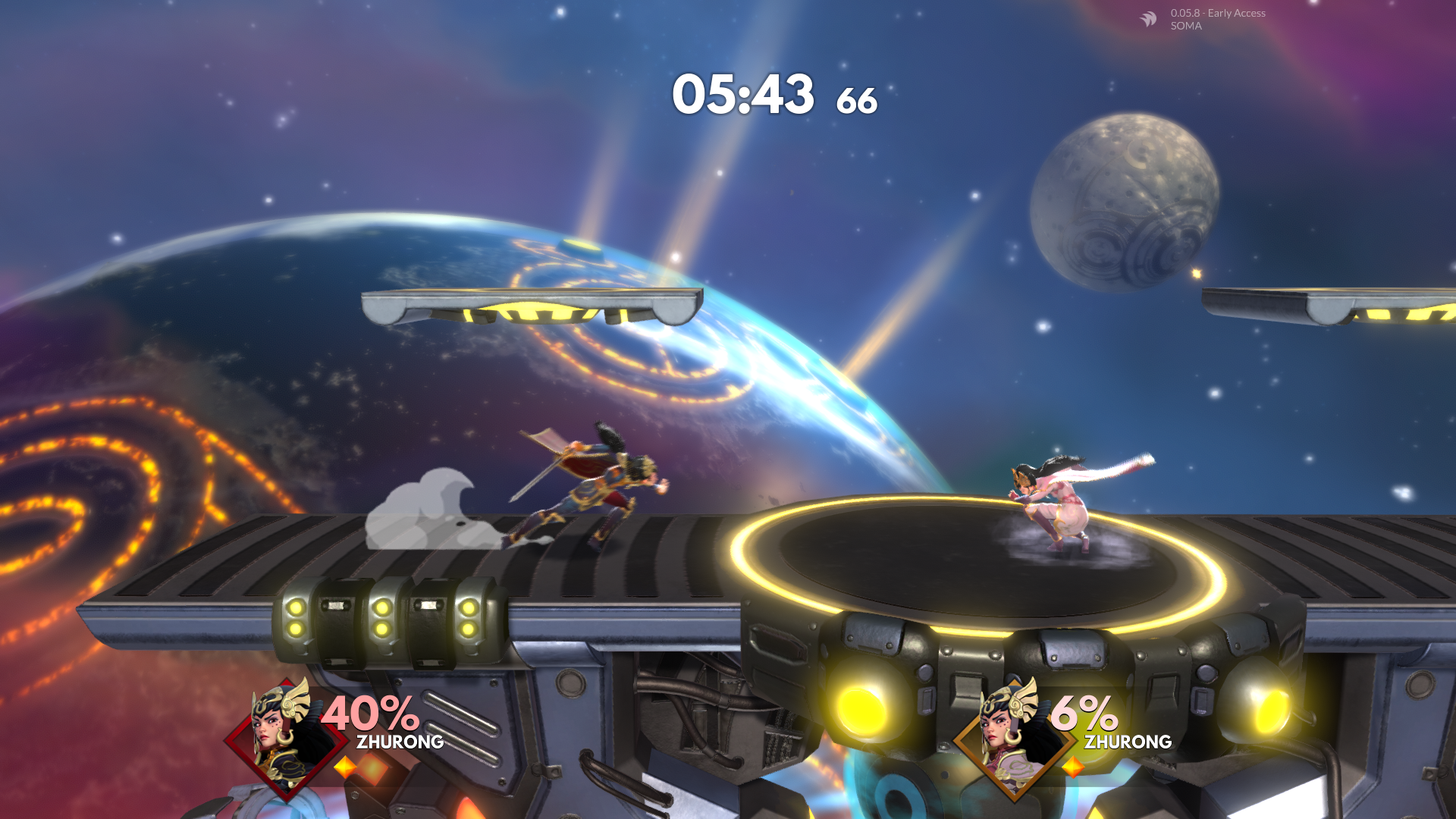
The shared influence is clearly visible in its gameplay as well. The initial trailer drew a fair share of criticism for having many of its character animations lifted directly from Melee, and it’s deserved. Kidd is a cute homage to professional Melee player Mango (because he’s the G.O.A.T., get it?), but he’s also very openly a “spacie” (Fox/Falco) rip-off. Zhurong is literally just Marth. Ashani and Xana look very much like Captain Falcon and Ganondorf.
The Shadow of Melee Looms Large
The intent is clear: to appeal to Melee players. And there are concessions made to appeal to a wider audience too. The core pricing model is free to play, and there have been minor system gameplay changes, such as the removal of L-canceling, a mechanic often considered a purely technical skill barrier, for universally lowered endlag on aerial attacks. The characters are speedy on the ground and fall fast, eschewing the floaty nature of the other Smash games. On paper, what they’re doing makes sense. They appeal to the existing fanbase with some derivative characters to draw them in while they can flex their creative muscles elsewhere, crafting their own unique identity.
But as someone who played in the beta from time to time, and now has full access to the character roster (I bit the bullet and bought a Pro Account), I can’t help but feel like this is all a fool’s errand. The months since the EVO 2017 reveal trailer have brought some much needed improvements and polish to the game, but this can’t cover up some of the most stinging criticisms raised in response to that reveal trailer.
The game still looks generic and bland, and the sound design, particularly on attack hits, is noticeably weak. The animations still need definite improvement. The game just lacks personality in every facet, from its title to the derivative character roster. And it’s not as if the changes they have made to the Melee formula are bad—on the contrary, I think they’re actually very well thought out. It doesn’t feel bad to play, and with time it might even truly capture the snappy, responsive Melee feel.
And I do find the game enjoyable, but after a while of playing I always come back to one question—one that every Melee player probably asks themselves when they play Icons. I feel it when I hit a Ken combo with Zhurong the same way I would with Marth, or when I pull off a not-quite Fox combo with Kidd. And it strikes at the core of Icons’ raison d’être: why would I play this when I could just play Melee instead?
Slap City and the Way of Whimsical Wackiness
Slap City, on the other hand, is almost everything that Icons is not, as far as Melee-inspired platform fighters go. That much is evident from the menu, where you can hear Slap City’s main theme, a lighthearted ditty sung by what sounds like an American Hatsune Miku, backed by a childish xylophone beat.
The roster is comprised of characters from the “Ludoverse”: games developed by the studio Ludosity. That means characters from Ittle Dew, Princess Remedy, Card City Nights, and more. If that means nothing to you, that’s okay—it didn’t mean anything to me either. The roster looks like mid-2000s Cartoon Network and Newgrounds had a baby. The characters include a gigantic, swole, blue fish-duck-man named UltraFishbunjin 3000; a saber-wielding orange octahedron in what appears to be a Tuxedo Mask cosplay; and a hot dog wearing business pants, a tie as his belt, and suspenders, dubbed Business Casual Man. There’s also a purple girl in an orange fox fursuit (I guess no competitive platform fighter is complete without a Fox of some kind), the Goddess of Explosions (who I also don’t know), and thankfully, two characters I at least kind of recognize: Ittle Dew from Ittle Dew, and Princess Remedy from Princess Remedy in a World of Hurt.
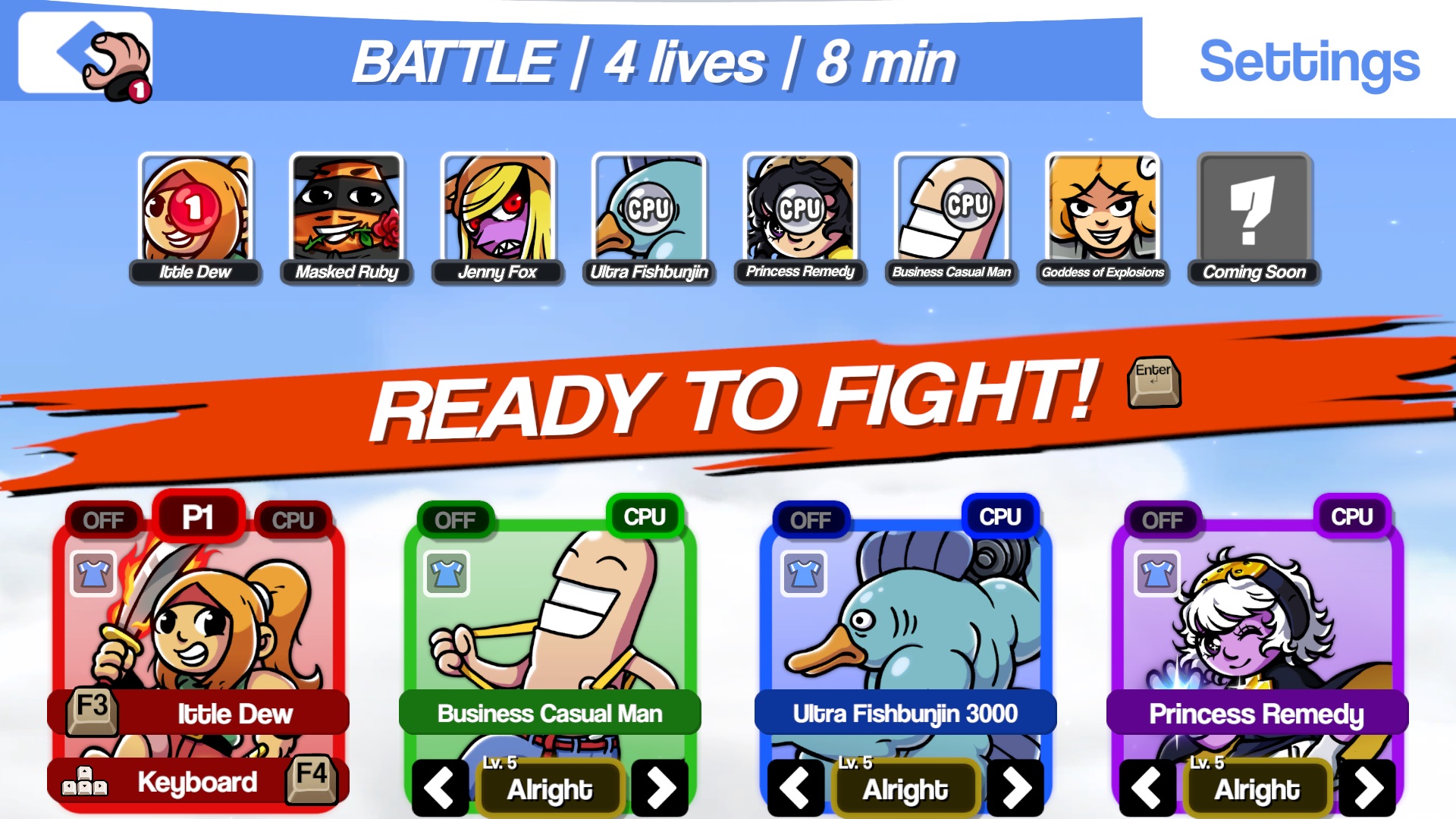
Free from the yoke of “esports” (although there is a Slap City online circuit), Slap City has originality, creativity, and character in spades. It might may not be universally appealing, but it’s got crazy amounts of heart, and every time I play as a character I feel like I discover another hilarious move or animation in their kit. In comparison to Icons, which feels dry and clone-like, everything in Slap City feels unique. I don’t know if there’s a single animation that feels like it’s been floated directly from Melee.
I’m Not Melee… Or Am I?
What’s ironic is that despite not openly advertising it, Slap City is actually very close to Melee on a granular system basis (though its Steam page description does have the token phrase “built with the fighting community in mind” present). In fact, it actually solves some of the more degenerate mechanics in Melee. The way the developers have dealt with things like ledge intangibility is subtle but brilliant, and the developers have introduced new mechanics as well.
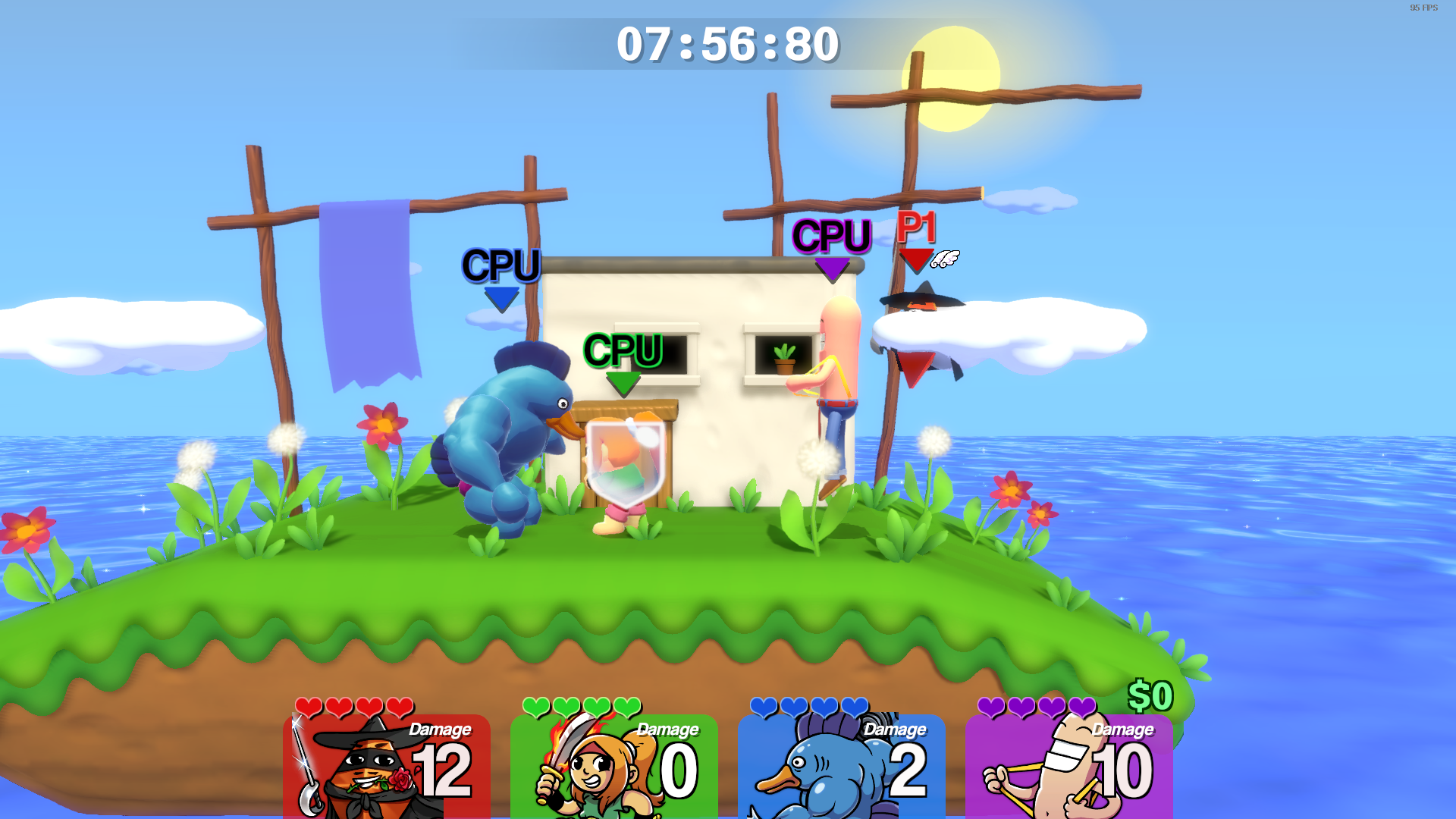
Slap City wasn’t revealed at EVO, or at a fighting game tournament, and it doesn’t have any characters designed specifically to appeal to Melee fans. But by going in a unique and fresh direction, even if the skeleton is the same, Slap City has accomplished for me what Icons still has not: being a game worth playing alongside Melee instead of trying to emulate or replace it. Trying to court a longstanding, homegrown community with an inferior replacement was always folly. Ironically, it’s not the game that’s trying to be “Melee, but free” that I’ve found myself enjoying; instead, it’s Slap City, this bizarro, Newgrounds-looking game where I main a yoked-out fishman that throws barbells, that has ended up captivating me.
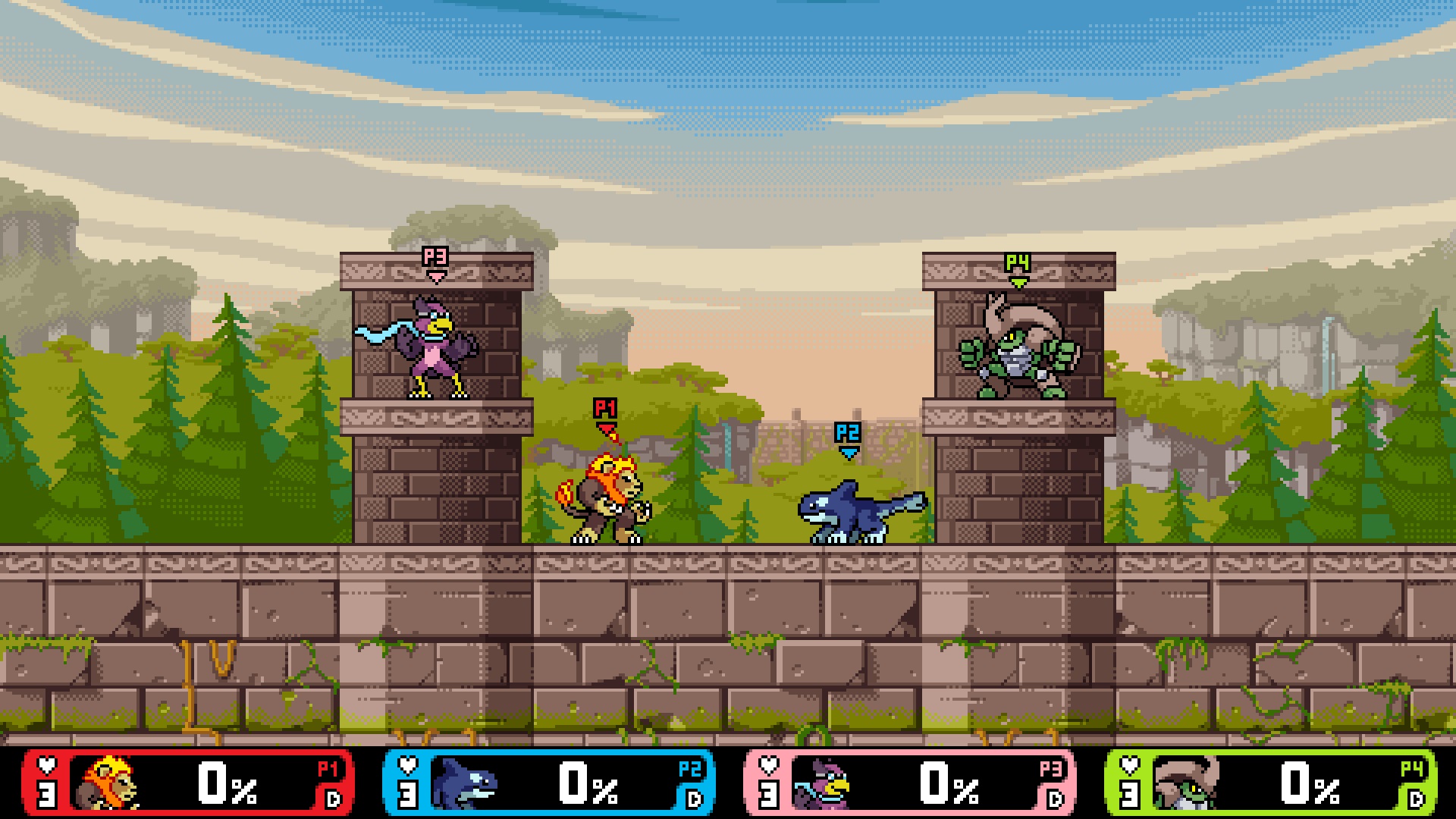
Credit Where Credit Is Due: Props to Rivals of Aether For Doing It Right
It would be remiss of me to discuss indie platform fighters and not give a shoutout to Rivals of Aether. Rivals is the most complete game here of the bunch. Unsurprisingly, it also has the most cohesive identity. It’s set in a completely original universe, and its 2D spritework is some of the most impressive I’ve seen this generation. Gameplay-wise, it has hammered out its own identity, removing key elements from Smash such as the ability to shield or grab. As a result, Rivals feels disconnected from Melee in a way that’s decidedly intentional. It’s a game I enjoy playing even if it’s not my favorite, although the muscle memory of Melee prevents me from putting as much time into it as I could.
I don’t have too much to say about the game on the whole, other than praise for Dan Fornace and his team for successfully creating an enjoyable, competitive platform fighter that doesn’t have Melee fingerprints all over it. The “Rivals formula,” if you can call it that, seems like the way to go. It’s probably no coincidence that the most successful indie platform fighters, Rivals of Aether and Brawlhalla, explicitly didn’t use Melee as their model. Carving out your own niche is what will draw people towards your game—not trying to appeal strictly to hardcore Melee players, who are some of the most loyal fans of any thing in any medium.
Thanks for reading!
If you managed to make it this far, thanks for sticking with my Melee-fueled rant. I hope this inspires you to check out some games in the platform fighter genre. Some other examples include Brawlout, Super Smash Flash 1 and 2, Indie Pogo, and hopefully more soon.
Check out some other recent pieces from The Punished Backlog:
Utada Hikaru’s “Don’t Think Twice” is the perfect send-off song for Kingdom Hearts III
A Deep Dive Into the New Subnautica Expansion: Below Zero
Huge video game, comic book, and anime fan. Spends way too much time watching things he doesn’t like. Hates Zack Snyder. Mains Falco.


